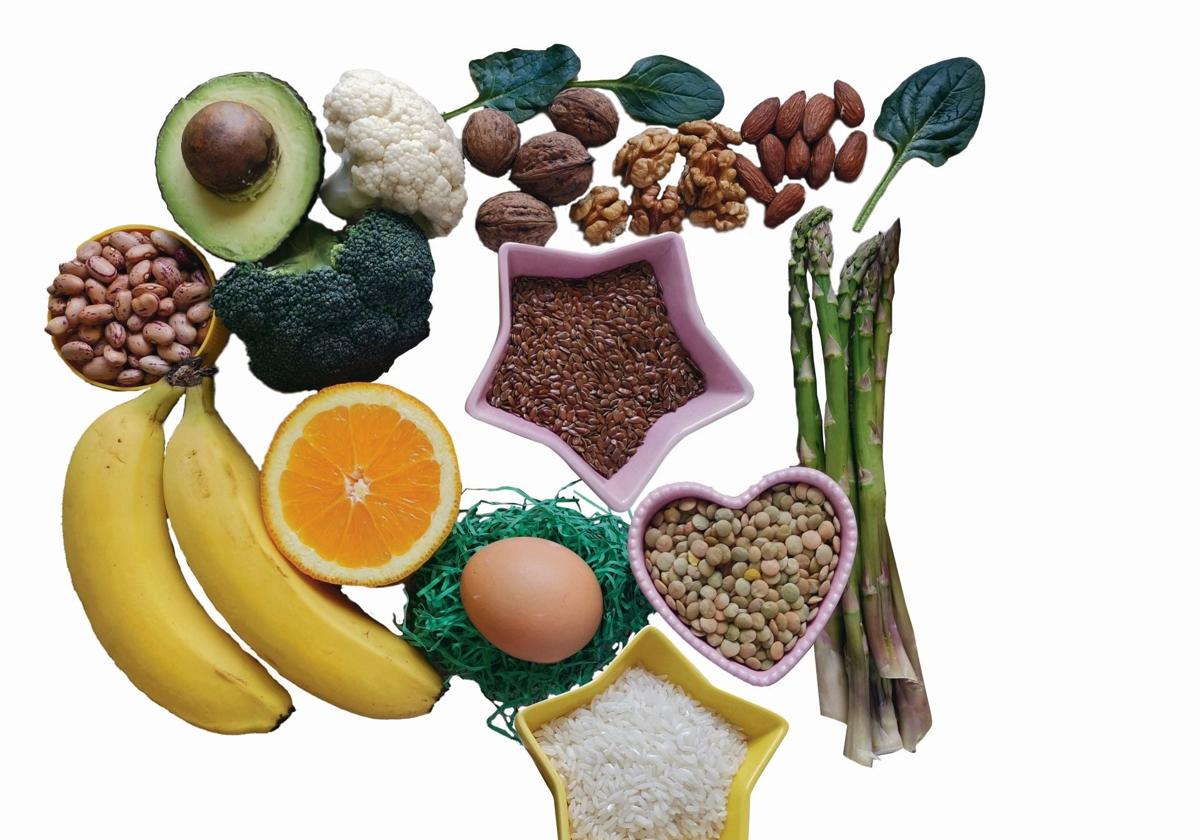

Sections
Highlight

Carmen Barreiro
Thursday, 17 April 2025, 12:24
When a woman decides she wants to become a mother or discovers she is already expecting a baby, one of the first supplements she is prescribed is folic acid. However, the latest research confirms that the benefits of this popular, laboratory-made vitamin extend far beyond pregnancy.
In general terms, it can be said that taking folic acid is not only crucial for optimal function of the nervous and immune systems, but also good for cardiovascular and mental health and even for improving sperm quality in men.
"Folate is an essential nutrient that our body is unable to manufacture, so it must be obtained through food or supplements," explains Dr María Riestra Fernández, a member of the steering committee of the Spanish Society of Endocrinology and Nutrition (SEEN).
Moreover, not consuming enough of it "can be the cause of both physical and emotional problems that are not always resolved", is the conclusion of a research study carried out by Complutense University of Madrid.
According to the World Health Organization (WHO), an adult should take an average of 400 micrograms of folic acid per day, a dose that should be increased to at least 600 micrograms during pregnancy and breastfeeding.
Symptoms of folic acid deficiency
Fatigue Physical tiredness.
Irritability insomnia, mood swings.
Paleness of the skin and mucous membranes.
Breathing difficulty In serious cases there may be a sensation of being unable to breathe, even with light exercise.
Memory problems and poor concentration.
Digestive problems.
Mouth ulcers and swollen tongue.
Hair loss due to the decrease in essential nutrients.
For children the recommended daily amount is between 200 and 300 micrograms. (Note: a microgram is one-millionth of a gram whereas the more commonly known microgram is one-thousandth of a gram).
"Older people should also pay special attention to the intake of this vitamin because the ability to absorb folate decreases with age. In addition, alcohol, digestive disorders such as Crohn's disease or coeliac disease, some anticonvulsant drugs and those used to treat kidney failure also interfere negatively with the absorption of this nutrient," is the guidance from the OCU, Spain's organisation of consumers and users.
A balanced diet would be sufficient to cover the basic folic acid intake that our bodies require, except during pregnancy and breastfeeding when a supplement needs to be prescribed by a doctor.
However, if we need to increase our intake of this nutrient, also known as vitamin B9, "the foods that contain the highest proportion of folate are green leafy vegetables (spinach, chard, broccoli, lettuce), pulses (lentils, chickpeas, beans), fruit (oranges, strawberries, bananas, avocado), nuts (almonds and walnuts) and fortified cereals", says Dr Riestra, who specialises in endocrinology and nutrition.
Folic acid is a "very safe" vitamin. In fact, it is extremely rare to reach toxic levels of this nutrient in the body. "However, in high doses - more than one milligram per day on a prolonged basis - it can mask a vitamin B12 deficiency, which could delay the diagnosis of pernicious anaemia," says the doctor.
The first and best known benefit is related to pregnancy. "Folic acid is essential because it helps prevent neural tube defects in the baby, which is the structure that will give rise to the brain and spinal cord during the first weeks of pregnancy.
The closure of the neural tube occurs very early, sometimes even before a woman knows she is pregnant, so it is recommended to start taking folic acid supplements at least one month before conception and throughout the first trimester. In addition, it also reduces the risk of premature birth, low birth weight and some placental problems by 30%," - on this point the specialists all agree.
Another of its benefits is that it contributes to the formation of red blood cells, thus preventing megaloblastic anaemia (the production of abnormally large, but immature red blood cells), which is caused precisely by vitamin deficiency. "Folic acid is a key nutrient for cell growth and regeneration, especially important in stages of rapid growth such as childhood, adolescence and pregnancy," says the OCU.
In addition to strengthening the immune system and preventing disorders such as depression and anxiety, an adequate level of this vitamin has a protective effect against some types of cancer, such as colon, breast and pancreatic cancer. Not only that, it can also improve the quality of eggs in women and sperm in men.
Publicidad
Publicidad
Publicidad
Publicidad
Esta funcionalidad es exclusiva para registrados.
Reporta un error en esta noticia

Debido a un error no hemos podido dar de alta tu suscripción.
Por favor, ponte en contacto con Atención al Cliente.

¡Bienvenido a SURINENGLISH!

Tu suscripción con Google se ha realizado correctamente, pero ya tenías otra suscripción activa en SURINENGLISH.
Déjanos tus datos y nos pondremos en contacto contigo para analizar tu caso

¡Tu suscripción con Google se ha realizado correctamente!
La compra se ha asociado al siguiente email
Comentar es una ventaja exclusiva para registrados
¿Ya eres registrado?
Inicia sesiónNecesitas ser suscriptor para poder votar.